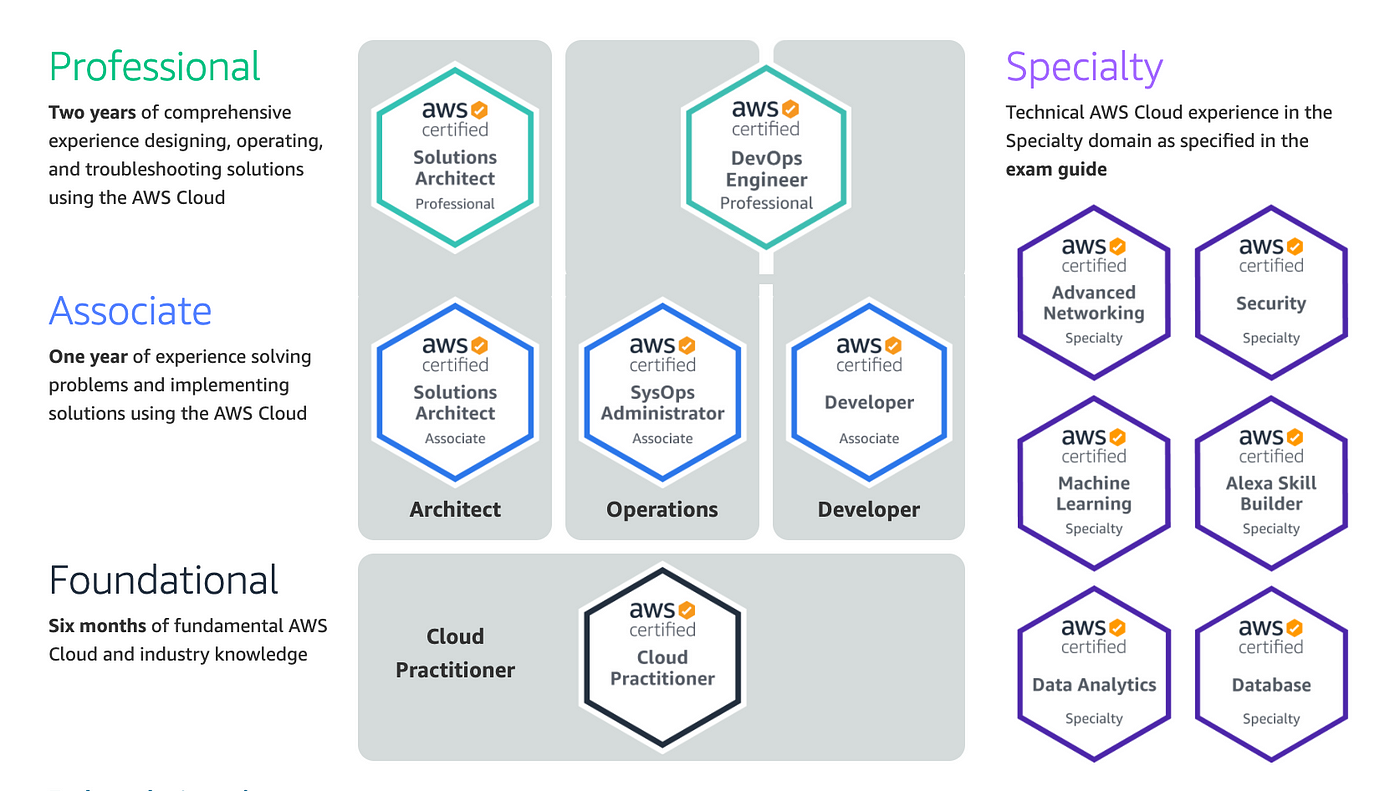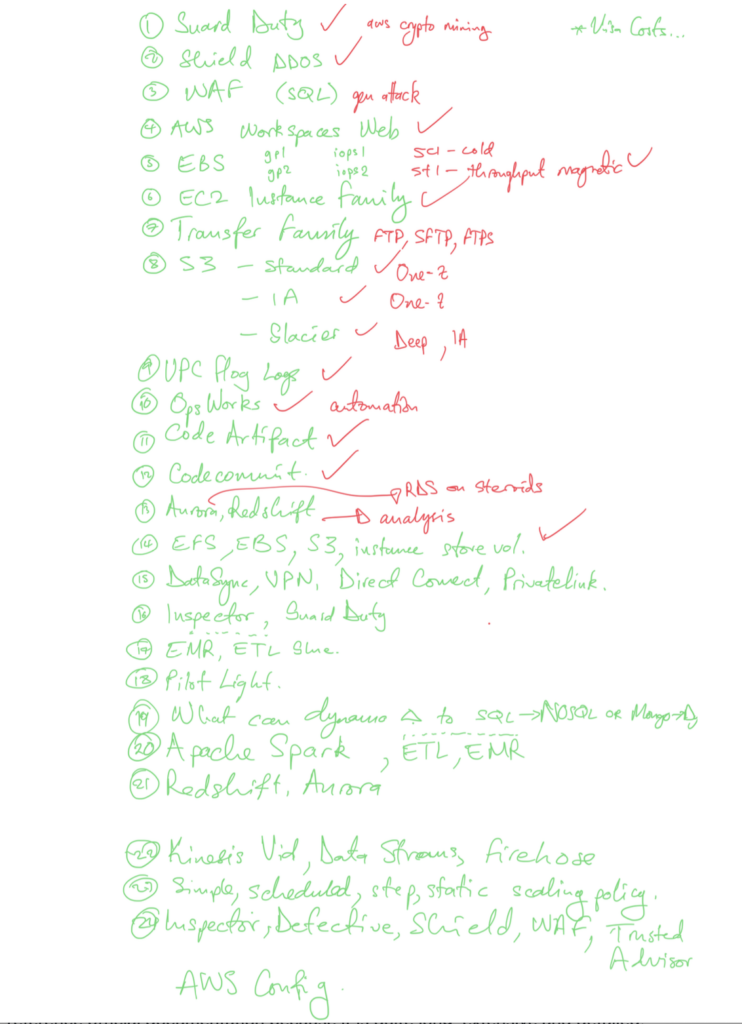There are several certifications with varying difficulty and each suited for various paths. I did the AWS Solutions Architect certification because it encompassed what I had been using extensively and wanted to learn about making better architectural decisions. It is also quite versatile with whichever path you then choose to take. I think Cloud practitioner is a good start, but if you have been using AWS practically with various services, you can skip it. It merely introduces the services. Solutions Architect now gets you to understand how those services are used, when to use what, whats cost effective etc. Check this article for more detail on the different certifications.

Some of the tips I would give would be:
- Understand the Exam Blueprint: Familiarise yourself with the exam guide and understand the domains, objectives, and weightage of each topic. This will help you prioritise your study and focus on the key areas.
- Hands-on Experience: Gain practical experience by working with AWS services. Create and manage AWS resources, build solutions, and practice implementing different architectures. Hands-on experience will reinforce your understanding of concepts and make it easier to answer scenario-based questions. This you might have already done with MOHARA projects or when you use Plurasight, you can access the Labs there.
- Look at Official Documentation and Training: AWS provides comprehensive documentation for each service. Study the official AWS white papers on the Well-Architected Framework, FAQs, and best practice guides. Pay special attention to topics like security, high availability, scalability, and cost optimisation. Learn about architectural patterns, design principles, and best practices for building scalable, reliable, and secure AWS solutions. Understand how different services can be combined to meet specific requirements and optimise performance. I would say reference official documentation because it is quite long, extensive and detailed.
- Deep Dive into Key Services, Networking and Security: Focus on understanding the core AWS services, such as EC2, S3, RDS, VPC, and IAM. Know their features, use cases, and configuration options in detail. These services often form the foundation of many architectures. Networking and security are crucial aspects of any AWS architecture. Understand VPC, subnets, security groups, Network ACLs, and AWS Identity and Access Management (IAM) policies. Know how to design secure and isolated environments.
- Focus on Cost Optimisation: Familiarise yourself with cost optimisation strategies, such as using AWS Cost Explorer, Reserved Instances, Spot Instances, and Auto Scaling. Understand how to estimate and monitor costs, and how to optimise resource usage to minimise expenses. Often times you will encounter several correct answers but one will be better in terms of cost so you need to keep a close eye.
- Team up and engage with fellow learners – in my case I had a study buddy with the same objective and we kept each other accountable weekly. Learning from others’ experiences can enhance your understanding and provide valuable perspectives.

Notes of services I learnt as I was revising
Resources I used:
- I checked out A cloud guru then realised that it was acquired by Plurasight meaning the course there and on Plurasight were identical. I used this as a primary resource. Its about 25 hours long and covers all services. It also has hands on labs you can freely use to practice.
- Official AWS practice exams to get a feel of the the actual exam.
- ONLY practice exams from Whizzlabs – take multiple practice exams to identify your weak areas and focus your study efforts accordingly. They also give a great summary PDF.
- I put in min 4 hours during the week and half a day on Saturdays when meeting with my study buddy. Started January, wanted to write end of Jan, realised I was not ready, pushed to end of Feb, then finally wrote end of March. Results released 48 hours later.
Remember to manage your time effectively because it flies in the exam, stay calm during the exam, and carefully read each question before selecting an answer. MOHARA was kind enough to sponsor my exam so continuous professional development is something that we promote as MOHARA. Good luck with your AWS Solutions Architect certification prep! As always, I’m available if you need any help/ advice.
TL;DR?
- Choose exam best suited for your needs.
- Understand the exam syllabus.
- Hands on experience is non-negotiable.
- Some key services need to be known in depth EC2, S3, RDS, VPC, IAM
- Plurasight, whizlabs, aws training portal.
- Put in the work, go get it!



